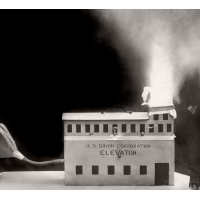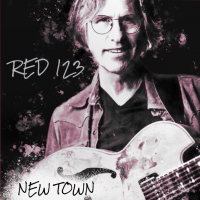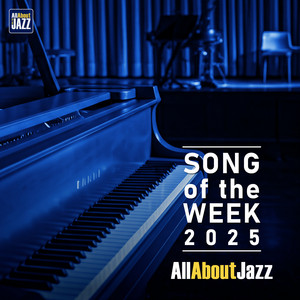Home » Search Center » Results: JazzWax by Marc Myers
Results for "JazzWax by Marc Myers"
Shorty Rogers: Centennial

Sunday, April 14, will mark the 100th anniversary of Shorty Rogers' birth. The trumpeter, flugelhornist, composer and arranger who was a founding father of West Coast jazz died in 1994 from melanoma at age 70. Today, in celebration of Rogers' contribution to jazz, I've assembled 10 of my favorite clips plus three bonus clips: Here's one ...
Backgrounder: Lou Levy 4 - Jazz in 4 Colors

When Shorty Rogers signed with RCA in the early 1950s, he had two jobs: to record albums for the label and to function as an A&R executive who would come up with new ideas with talent and record them. One of those ideas in 1956 was to help Lou Levy create a new sound for a ...
Documentary: Ronnie Scott and All That Jazz

Director John Fordham's joyously poetic documentary Ronnie Scott and All That Jazz first appeared on the British TV series Omnibus in 1989. It tells you all you need to know about Ronnie, his straight-faced sense of humor and the Soho club still in operation founded in 1959. Ronnie passed in 1996. Here's Ronnie Scott and All ...
Johnny Hodges: 3 Shades of Blue (1970)

Yesterday, I posted on Webster's Dictionary, a rare late-career album by tenor saxophonist Ben Webster and arranged by Stan Tracey that is virtually unknown by even ardent jazz fans. To continue my series on great saxophonists and little-known gems in their final years, today I'm looking at Johnny Hodges's 3 Shades of Blue, arranged and conducted ...
Ben Webster: Webster's Dictionary, 1970

One of my favorite Ben Webster albums from the tail end of his career is Webster's Dictionary, recorded in London for Ronnie Scott Records in October 1970. The label was founded by Scott, the famed British tenor saxophonist and club owner, which tells you immediately it's an intelligent record. By intelligent, I mean that Scott did ...
Backgrounder: Quincy Jones - Twilight Time

Early in March, I posted a Backgrounder on a 1957 album arranged by Quincy Jones in Paris. In the U.S., the LP was released by United Artists and was called Americans in Paris. In France, it came out on Barclay and was known as Et Voila! The album was recorded with Eddie Barclay, the owner of ...
Tony Monaco: Over and Over

One of the most exciting Hammond B3 players today is Tony Monaco. He knows how to shake up the funk and turn it loose. He also brings enormous energy to his playing style, pouring it gleefully into the keyboard and pedals. And it's no wonder, since he came up mentored by the incomparable Jimmy Smith. Growing ...
Johnny Lytle: People & Love

Johnny Lytle was a big deal during the 1960s and early 1970s. In some respects, the vibraphonist and composer perfected an album model that inspired Creed Taylor's CTI label, combining jazz originals and jazzy interpretations of soul hits. In many respects, there isn't a bad Lytle album. One of my favorites was his interpretation of songs ...
Backgrounder: Herbie Mann - Yardbird Suite

By 1957, the West Coast jazz scene was firmly established and its musicians were working regularly in Los Angeles' many recording studios. The best ones worked relentlessly cranking out 12-inch LPs. The same was true of New York's jazz scene, where improvisers found themselves in strong demand by leading labels such as Blue Note, Prestige, Savoy ...
Joe Henderson: Power to the People

A new jazz style emerged in the late 1960s that wasn't an extension of hard bop or free jazz. For a brief period—following the assassination of Martin Luther King Jr. in April 1968 and the onset of fusion in the mid-1970s—a new Black power expression wrapped in pan-Africanism appeared in the works of Black journalists, books ...




















